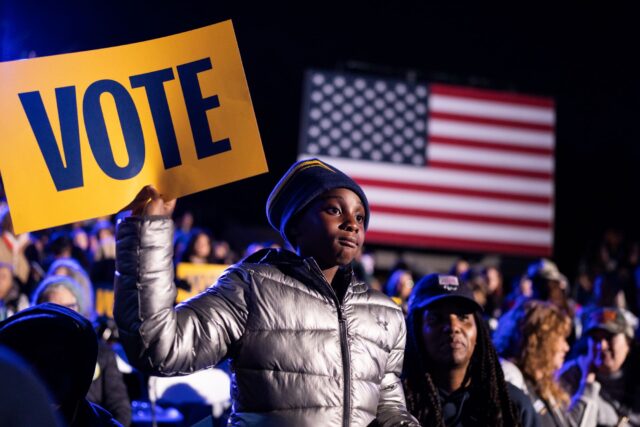Editor’s note — Liz Farrell’s husband is S.F. mayoral candidate Mark Farrell.
It’s election season, and for the last few weeks (maybe months), we have been inundated with political ads on television, in the mail and online. They have been almost impossible to escape, even for our kids. We can attribute this to important and contentious races both locally and nationally, but soon it will come to an end.
Many of us don’t usually start paying attention to politics — locally or nationally — until it affects our daily lives or there is an issue we care deeply about. This year, it has been more personal for us, as one of the main reasons we made the decision as a family to enter this year’s mayoral race was to model the importance of giving back to your community and to work for change if you don’t like the direction things are going. It isn’t always easy and requires tenacity, bravery and definitely some thick skin.
One of the most fun and exciting parts of this campaign has been watching families and children of all ages get engaged civically, as it grows community and offers great life lessons.
Knowledge and Responsibility
Campaigns are a great way for adults, and also children, to learn about the important issues facing our city or country. Not only are they able to learn a lot about how our local or federal government works, but also about our rights and responsibilities as voters and citizens.
One of those responsibilities is to get informed. It is never too early to talk to your children about where they get their information, considering sources and who funds the messages, so they can dive deeper into understanding issues they care about — whether it be public transportation or parks.
Learning about what they experience in their daily life and the role the government plays can be very impactful. It also helps them develop awareness and respect for differing opinions while allowing them to think critically and create their own informed opinions.
Empowerment
Participating in community activities helps children feel empowered and capable of making a difference. Whether the person or issue wins or loses, they can feel good about their involvement and the impact of their actions.
Our campaign has had a robust intern program of high school and college students, and they often comment that they have benefitted from working on the campaign by learning about the issues, and also their city. By traveling to different neighborhoods and engaging with different communities, they have developed a much deeper connection to their city.
The opportunity also allowed them to work in teams and meet students from different schools and learn about their experiences. Lifelong friendships are made on campaigns, and that’s a wonderful gift — one that makes the long days and short nights all worth it.
Life Skills
There are many benefits of getting engaged civically but there are also personal benefits — life skills that you learn working on a campaign. Anyone involved with a campaign will tell you they are a lot of work. They often require you to do things you haven’t done before that push you out of your comfort zone, but you develop wonderful skills that benefit you in other areas of life.
Some of the opportunities include going door-to-door or calling people to talk about the candidate or issue. For our children, especially since they spend so much time online, the interpersonal skills of looking someone in the eye, being polite and kind when a door is slammed in your face, or getting hung up on, all build grit and resilience.
For many, it’s their first sales-like job. They learn to roll up their sleeves and help where needed — which can be anything from stuffing envelopes and making copies, to going to fun events. These skills build self-esteem, confidence and the initiative to jump in where needed.
Whether it is waving signs and passing out information, or making calls and knocking doors, there are ways for all ages to get involved. My son rallied a group of classmates recently to wave signs, and now they all feel personally vested in the campaign as sixth graders. Many of my daughter’s friends are voting for the first time this cycle, and having worked on the campaign, feel a different sense of importance about making sure their vote counts. You never know — this early engagement may lead to some of them running for student council, majoring in political science, or maybe even running for office one day themselves.
Liz Farrell is the mother of three children and the founder of TechTalks, a consulting group to help schools and families have productive conversations around social media and technology. Comments: [email protected].




